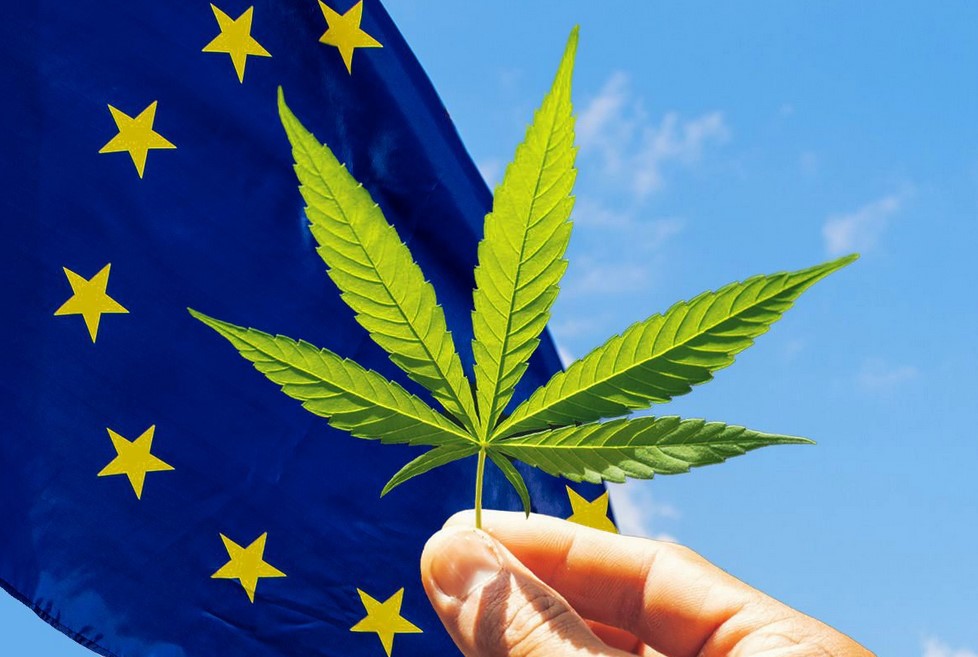Non classé
Cannabis in Europe: 2022 Update
The big news is: Germany, the largest economy in Europe (and fourth largest globally), is making progress towards full cannabis legalization. However, it’s not the only country in Europe taking this step.
There is always a catch–legalization and market start for recreational cannabis will not be fast or easy anywhere, including Germany. This includes an unsurprising temporary backlash from conservative politicians in the Christian Democratic Union (CDU), mostly from Bavaria–which some people here refer to as the Texas of Germany.
Although it may be challenging, the message from Berlin is that reform for recreational cannabis use is possible and will happen soon.
The Largest Issues
The primary issue European countries face is progressing on a sovereign level while also amending EU regulations concerning the same. The EU strives to adhere to international law, in general terms. This encompasses the cannabis mandates set out in both the 1961 Single Convention on Narcotic Drugs and 1971 Convention on Psychotropic Substances.
The reason this has not been more of an issue before is that EU countries, starting with Germany, began classifying cannabis as a medicinal narcotic. In 2020, the EU went further and recategorized CBD as a non-narcotic compound. However, in most cases locally, regulators have yet to update laws to match the EU’s stance on CBD. The German CBD market is growing, but it’s difficult to import hemp from other European countries unless a person has a pharmaceutical license. Also, businesses that sell CBD products are at risk of criminal prosecution. In addition, the entire conversation is overshadowed by discussions about Novel Food regulation.
If cannabis is legalized for recreational use, this will classified the plant as both low- and high THC varieties. It also will make countries who have not addressed CBD yet to update their narcotics laws.
This reformulation will be supported by the UN. The UN has continually pushed back marijuana legislation in the past. However, at their last meeting concerning cannabis, they removed it from Schedule IV of the 1961 Convention. Now, individual countries are able to create their own laws and regulations surrounding cannabis use and sales.
Developments in Germany
The German government is planning to introduce legislation by the end of 2022 or early next year. They held hearings in June and have started discussions with Luxembourg and Malta on how to reform EU law and address recreational use of cannabis.
The general population has always been a step ahead of the politicians, but on this issue, they are not lagging by much. A recent poll showed that 61% of people support recreational reform—a huge shift from five years ago when 63% were against full legalization.
Federal medical reform in Germany appears to be revolutionizing the way people gain access to medication, though the process is still rather tedious. In 2017, springtime saw the legalization of cannabis for medical purposes and public health insurers were then mandated to cover reimbursement of all resulting prescriptions. Now, there are tens of thousands of patients taking advantageof this progress–though it should be noted that approval is not always easily given. The German Society of Pain Doctors recently created a streamlined approvals process with one of the nation’s largest insurers—AOK—in order to streamline the pain medication approval process in one state in Germany.
Although recreational reform has stayed a political football to some degree, the ousted Christian Democratic Union of Germany/Christian Social Union in Bavaria (CDU/CSU) have seen this as a false campaign issue against the current government. Recently, the party commissioned Bundestag (German Parliament) lawyers to asses EU law concerning cannabis use and unsurprisingly, they came back with negative results. Despite all the racket , it’s clear that not even they can stop the inevitable momentum.
The Social Democratic Party (SDP) of Germany launch a counter-offensive against the accusations on Instagram by many people who believe that the current government is going to violate international law. The general consensus is that there will be no violation of any EU or global laws; in fact, they have given broad hints at what reform might look like. Dispensaries will most likely be allowed, as well as limited home growing; however, online sales will remain forbidden. There is a good chance that both flowers and edibles will be allowed. And recreational cannabis users will likely be able to source their products from both domestic and international sources (though initially, only products with GMP certification will probably be available).
Look for the recreational market to open up sometime between 2024 and 2025, with the legislation passing next summer. This is despite still looming legal hurdles.

Luxembourg and Malta
Although other member states of the EU have taken limited steps towards reform, they have been waiting for Germany to take the lead. Now that Germany has legalized home grow, both countries are following suit.
Although medical cannabis is legal in Malta, and the government of Luxembourg has said that it plans to legalized recreational use within five years, progress on this issue has been slow. One reason for this is that Luxembourgian policymakers want to make sure that any changes they make are compatible with the laws of other European countries.
Other EU Countries
Several countries who are not a part of the EU have already taken similar steps, and more are expected to do so in the near future. The Dutch experiment is often seen as a failure by other European countries, even though cannabis cultivation is now federally regulated. While this policy is only in experimental phases, it’s abundantly clear that the point of no return has passed. All discussions surrounding legalization, in Europe and Switzerland especially, are still being referred to as an experiment. This is largely because shops located in larger cities are exempt from the program. Nevertheless, it’s obvious to everyone that there’s no going back at this juncture.
The Czech Republic’s announcement to legalize recreational use is one of the more interesting developments in recent months. Further, the country has invited other EU countries to collaborate with it on an international level—meaning it will likely be the next country to join the multinational coalition formed by Canada, Uruguay, and Portugal.
It is highly likely that Portugal and Italy will join the multilateral coalition in the near future. In general, Portugal has a liberal drug policy, and it has been working on legalizing cannabis for several years. Moreover, Tilray is just one of many cannabis companies that have set up operations in Portugal while they wait for legalization to go through.
Italy, whose medical cultivation program is also underway and has been Lobbying for the right to grow at home for at least 2 years, may soon follow suit.
Switzerland
In September 2022, Switzerland will become the first country in Europe to offer a recreational program of this magnitude. This is due in part to the fact that Switzerland is not a member of the EU. The trial is currently being governed by canton (Swiss states). German-speaking parts of the country appear to be reforming fastest. This may also influence discussions amongst Germany’s neighbors as well as Austria–the third member of DACH trading alliance which includes Switzerland and Austria.
The Swiss experiment is most interesting because it waive both the EU-GMP (pharma-grade) certification for high-THC cannabis as well as Novel Food—a regulation that has been hampering CBD’s growth across Europe.
Summary
If we were to make an analogy, it would be that Europe is at a green tipping point like the U.S. was in 2012, except on a federal and international level. How quickly the ball starts rolling on country-by-country basis is one thing, but regional reform is also clearly in the cards. Meanwhile, this planet is witnessing the birth of one of most beneficial regional cannabis markets globally.


